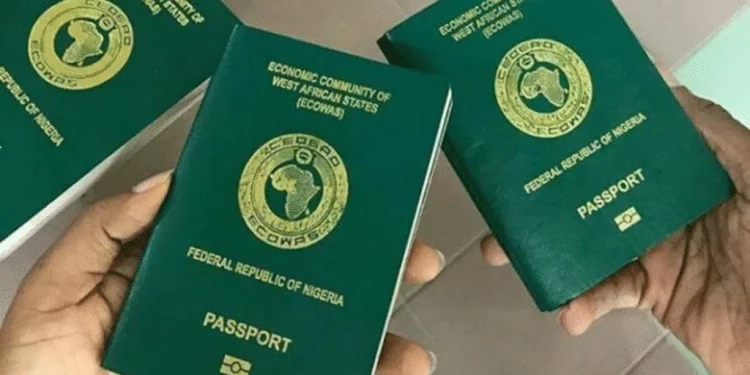Despite the federal government’s recent deployment of advanced technology to speed up passport processing and the increase in official passport fees, officials of the Nigeria Immigration Service are still extorting applicants, according to findings from an undercover investigation. The new system, designed to reduce corruption and eliminate bottlenecks, has not stopped officers from demanding illegal payments, a problem that appears widespread across passport offices outside Abuja.
A Lagos resident who recently applied for a passport recounted his experience at the Alausa Passport Office in Ikeja. After completing his application online and paying N208000 for the ten-year passport, an official attached to the Passport Controller Officer’s office insisted that he pay an additional N5000 in cash or risk delays. The applicant said he refused and contacted a relative who reached a senior official in Abuja. After the Passport Controller intervened, he was allowed to proceed without paying the extra fee, although many other applicants paid without question.
Findings show that these extra charges are common in most passport offices except Abuja, even after the government raised passport fees to N100000 for the five-year booklet with a N4000 service charge and N200000 for the ten-year booklet with an N8000 service charge. Many Nigerians argue that the increase in official fees should have removed any excuse for illegal demands, yet the practice persists.
A senior Immigration official in Abuja said many officers are unhappy with reforms introduced by the Minister of Interior, who has pushed for a more advanced, less bureaucratic system aimed at reducing backlogs, curbing touting and improving efficiency. The official alleged that the minister must be aware of the ongoing extortion since the complaints are widespread. He added that demand for passports has reduced because of the high cost, yet officers still force applicants to pay bribes.
He also pointed out a major weakness in the new online system. Many Nigerians, including traders and those with limited digital literacy, struggle with the online application and return to Immigration officials for help, making them vulnerable to exploitation. He explained that such applicants often pay whatever they are told. He criticised the central passport processing structure, saying the deployment of young tech-skilled personnel has sidelined long-serving staff and created tension. He noted that a recent virus attack damaged the central equipment and destroyed about eight hundred passport booklets.
The official said the zonal printing system was more efficient because distribution was faster and more reliable. He added that the N2000 paid for home delivery rarely works due to unreliable addresses, forcing applicants to return to passport offices to pick up their passports.
On September 18, 2025, the Special Adviser to the President on Information and Strategy announced that the Interior Minister had improved the system by centralising production, boosting daily output to between four thousand and five thousand passports. However, the Immigration Public Relations Officer contradicted that claim, stating he was not aware of any extortion and insisting all payments are done online. He also said centralised production has not yet begun and that passports are still produced at zonal centres. He defended the deployment of new IT-skilled personnel and said reforms would not lead to job losses, arguing that the modernization process is meant to improve efficiency.
He also explained that Nigerians abroad can now apply through embassies using a contactless system that delivers passports in about two weeks. Although this reflects progress, current indications show that the widely advertised centralization of production and the promise to deliver passports within one week have not yet been fully achieved.
Beyond the inconsistencies in the reform narrative, the cost of obtaining a passport has more than doubled even though the process remains largely unchanged. Some Immigration officers argue that automation should have reduced costs rather than increased them. A retired Deputy Controller General said automation alone cannot eliminate extortion because many Nigerians still depend on officials for help with their applications, creating opportunities for illegal charges.
The persistence of extortion affects everyday Nigerians and small businesses that rely on international travel for trade, procurement, study and medical trips. Many applicants now delay passport processing because of the high official fees combined with informal charges, deepening concerns that the reforms, though ambitious, are yet to deliver the ease and transparency they promised.










